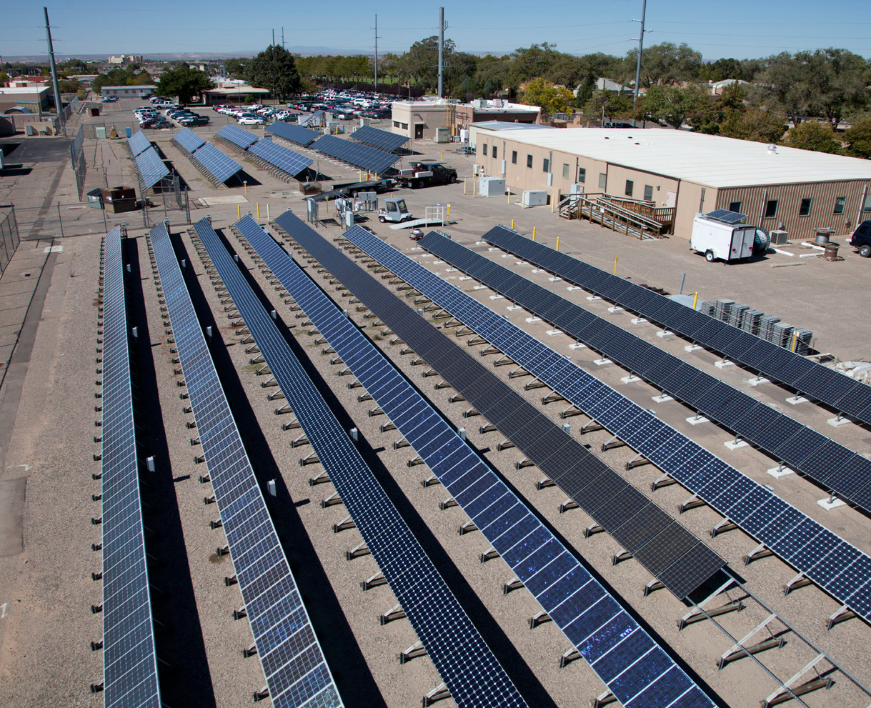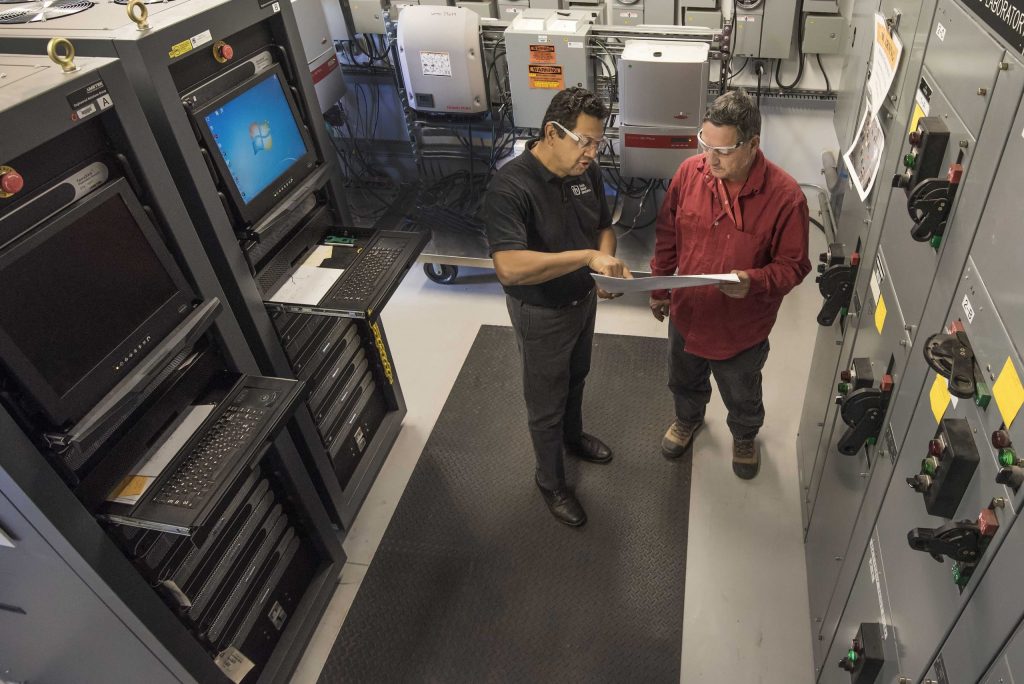Sandia’s Distributed Energy Technologies Laboratory (DETL) is a multipurpose research facility designed to integrate emerging energy technologies into new and existing electricity infrastructure to accommodate the nation’s increasing demands for secure and reliable energy.
Utilizing the lab’s highly configurable platform, researchers at Sandia’s DETL perform advanced research on energy generation, storage, and load management technologies at component through system levels. DETL researchers examine advanced materials, controls, and communications to enable safe and resilient distributed and renewable power systems infrastructure.
About the Facility
Part of the Resilient and Distributed Energy Systems Integration (REDSI) program, the Distributed Energy Technologies Laboratory (DETL) is a multipurpose research facility designed to integrate emerging energy technologies into new and existing electricity infrastructure to accommodate the nation’s increasing demand for secure and reliable energy.
Researchers at the DETL perform advanced research on generation, storage and load management technologies at component through system levels. DETL staff examine advanced materials, controls, and communications to enable safe and resilient distributed and resilient power systems infrastructure. Because the lab is highly configurable, it allows researchers to evaluate energy resources and controllers such as inverters and other power electronics equipment under a wide range of conditions including irradiance variability, AC/DC protection schemes, high and low temperatures, power levels and voltage and frequency regulation functionality in both grid-connected and microgrid configurations.
The DETL provides power electronics testing capabilities including island and campus microgrids, and scaled portions of utility feeders and the transmission infrastructure through power hardware-in-the-loop (PHIL). DETL includes a 480V, 3-phase microgrid, with interconnections to the utility grid and to various distributed energy resources including PV inverters, ES inverter with grid-forming capability, microturbines, fuel cells, reciprocating engine-generators, and electrical energy storage systems.
DETL researchers provide expertise and test support to perform the following functions:
- Grid-connected performance evaluations (e.g., efficiency, distortion, power factor, response to abnormal grid conditions)
- Off-grid (stand-alone) performance evaluations (e.g., transient response, compatibility with various load types, voltage and frequency regulations)
- Specialized tests (e.g., radio-frequency emissions, “non-islanding inverter,” interactions of multiple sources on a common microgrid, surge tolerance)
- Hosting capacity research and development
- DER and power systems performance analysis
- Microgrid and adaptive protection systems
- Hardware and standards compliance and development
- Partnerships with the solar PV industry
- Grid cybersecurity
Application Areas
DETL enables high penetration of photovoltaics (PV) and other resilient technologies into the electric grid. Advanced Power Electronics Researchers at DETL develop innovative energy management systems for the nation’s new energy future, including highfidelity inverter model development and validation, as well as component performance and reliability evaluations.
Researchers at DETL develop innovative energy management systems for the nation’s new energy future, including highfidelity inverter model development and validation, as well as component performance and reliability evaluations.
The team conducts adversary-based cybersecurity assessments on live, virtualized DER communications networks by using co-simulation environments that represent power systems, DERs, and communication networks. This capability enables the design of cybersecure DER communication networks, intrusion detection systems, and dynamic defense technologies.
Sandia supports the PV industry through investigations of high-penetration PV integration and increased hosting capacities. The DETL team works with standards development organizations to inform national and international interconnection, interoperability, and compliance standards.
Partnering with industry to advance R&D, DETL has established electrical and communication connections to a functioning DC microgrid, enabling enhanced efficiency, load control, cybersecurity, and specialized testing analysis for intentional islanding and surge tolerance.
Contact
Nick Gurule
DETL Manager
nsgurul@sandia.gov

